The Évian Accords turn 60
Overview
March 18, 2022
By William B. Quandt
I spent the early part of my career as an academic researching and writing about the Algerian struggle for independence and how that affected Algeria’s politics after it won its freedom in 1962. Because of that early intellectual interest, I have tried over the years to follow the twists and turns of Algerian politics. As Algeria approaches its 60th anniversary of independence on July 3, 2022, I thought it would be valuable to focus on the negotiated agreement that made that transition to independence possible, the Évian Accords. Those Accords, laboriously negotiated over a period that spanned at least two years, were finally signed on March 18, 1962, and a ceasefire went into effect the following day.
To help explain the importance of these Accords, and the more important phenomenon of ending 132 years of colonial rule and a seven-year-long bloody war for independence, I have assembled a number of recent reflections, as well as links to other resources. I'd also like to thank Amelle Zeroug, the Project Manager at Just World Educational, for her great work on this project.
-
- Interview with Zohra Drif Bitat, a renowned freedom fighter who was arrested during the Battle of Algiers in 1957, was freed in 1962 as a result of the Accords, and went on to have a distinguished career as a lawyer and politician in independent Algeria. In this moving interview, she recalls her feelings on learning of the agreement to end the war, her feelings upon release from prison, and her hopes for the future of her country.
- My own short essay on the Evian Accords as a reminder that negotiations can end even the most intractable of conflicts. I include some background on how I was drawn to my interest in Algeria as a student in France in 1961, just as the Evian negotiations were getting underway.
- Djaouida Siaci, an Algerian-born international lawyer, now living in the United States, with degrees from universities in Algeria, France, and the United States, provides background to the Accords and offers personal notes about her own father’s arrest during the Battle of Algiers.
- Abdelmonem Said Aly is a prominent Egyptian political analyst. Here he reflects on his early memories from his school days of how Algeria’s struggle for independence was championed by Egyptian President Gamal Abdel Nasser. He traces the subsequent close relations between Algeria and Egypt rooted in their common stances in the anti-colonial movement and on the Palestinian cause.
- Nacereddine Gueche is an Algerian-born lawyer who has practiced in both Algeria and France. Here he notes the main steps along the way to the achievement of the Évian Accords and highlights the little-known role of the Provisional Executive in facilitating the transition from ceasefire to independence.
- Amin Khan is an Algerian poet, public intellectual, and former diplomat. Here he draws five specific lessons from the Algerian struggle for independence and shows how, despite internal disputes, the Algerian leadership never lost sight of the importance of unifying around the goal of achieving full independence in all of the territory of Algeria.
- Hugh Roberts is the Edward Keller Professor of North African and Middle Eastern History at Tufts University. He has conducted extensive field work in Algeria and is the author, among many other publications, of The Battlefield: Algeria 1998-2002.
- Additional Resources. Here you will find links to some additional perspectives on the Evian Accords, including by French scholars, as well as detailed summaries of the Accords and the text in French.
Interview with Zohra Drif Bitat, Algiers on the Evian Accords and their Significance
Interview with Zohra Drif Bitat, a renowned freedom fighter who was arrested during the Battle of Algiers in 1957, was freed in 1962 as a result of the Accords, and went on to have a distinguished career as a lawyer and politician in independent Algeria. In this moving interview conducted by William B. Quandt, she recalls her feelings on learning of the agreement to end the war, her feelings upon release from prison, and her hopes for the future of her country. Find the English transcript below and the French transcript here.
 Zohra Drif Bitat is a hero of Algeria’s war of national liberation. Born in 1934 in Tiaret, in western Algeria, she studied law at the University of Algiers before joining the National Liberation Front. As a core member of the movement’s armed wing in Algiers, she conducted or supported several high-profile operations that advanced the revolutionaries’ struggle to draw international attention to France’s abuses against the local population and the Algerians’ need for freedom. Ultimately captured by the French and condemned to twenty years of forced labor for “terrorism”, she spent five years in prison in Algeria and France, during which she continued her legal studies and her activism. Her memoir, Inside the Battle of Algiers: Memoir of a Woman Freedom Fighter is the remarkable account of her self-recruitment into the FLN, her participation in the Battle of Algiers, her arrest in 1957, and her release from prison at the time of the Evian Accords.
Zohra Drif Bitat is a hero of Algeria’s war of national liberation. Born in 1934 in Tiaret, in western Algeria, she studied law at the University of Algiers before joining the National Liberation Front. As a core member of the movement’s armed wing in Algiers, she conducted or supported several high-profile operations that advanced the revolutionaries’ struggle to draw international attention to France’s abuses against the local population and the Algerians’ need for freedom. Ultimately captured by the French and condemned to twenty years of forced labor for “terrorism”, she spent five years in prison in Algeria and France, during which she continued her legal studies and her activism. Her memoir, Inside the Battle of Algiers: Memoir of a Woman Freedom Fighter is the remarkable account of her self-recruitment into the FLN, her participation in the Battle of Algiers, her arrest in 1957, and her release from prison at the time of the Evian Accords.
A Model for Ending a War? Looking Back at the Evian Accords on the 60th Anniversary of their Signing
March 18, 2022
By William B. Quandt
Sixty years ago, a long and bloody war in Algeria finally came to an end with the signing of the Evian Accords between France and the Algerian National Liberation Front. Today, as we witness another appalling war instigated by Russia’s invasion of Ukraine, it is worth recalling that even seemingly intractable disputes can and should be resolved by negotiations.
The history of France’s 132-year occupation of Algeria is little known in the United States, but how these bitter enemies were able to negotiate an agreement that set the stage for the end of France’s largest colonial project and opened the way for Algerians to govern themselves as a modern, independent state is worth understanding.
In commemoration of the sixtieth anniversary of the signing of the Evian Accords, I have invited a number of knowledgeable commentators to contribute brief essays on the importance of the Evian Accords. I have also identified some resources that will allow readers to dig more deeply into this most interesting moment in the history of decolonization.
My own introduction to the French-Algerian conflict came in spring 1961 when I was a college student studying in France. From the beginning of my stay in France the previous year, I had taken an interest in the debate going on among French citizens over what to do about the war in Algeria that had been underway since November 1, 1954. French President Charles de Gaulle had come to power in 1958 promising to bring an end to the war, but he did not spell out how that would be done. On his first visit to Algeria after his election, he addressed an enormous crowd of French citizens of Algeria (considered a department of France at that time) and told them that he “understood” them -- “Je vous ai compris!” Soon thereafter, military operations against the Algerian fighters intensified. But before long, de Gaulle reached the conclusion that a negotiated end to the war was needed and that the only viable negotiating partner was the FLN, the acronym for the Front de Libération Nationale. In January 1961, he called on French citizens to vote in a referendum calling for Algerian self-determination. Over 70% of French citizens voted yes.
My most vivid memory from this period was the moment in April 1961 that some French generals in Algiers threatened to oust de Gaulle from power. His speech to the nation, which I listened to, ended with a rousing appeal to the French nation. “Française, Français, aidez-moi!” He called for their help, and they gave it to him. The attempted insurrection fizzled for lack of popular support. From that moment forward, it was clear that Algeria would soon be independent. But the negotiations nonetheless proved to be long and difficult. Having glimpsed how important the French-Algerian issue was, I started following the reports of negotiations in Evian.
Shortly after Algeria gained its independence on July 3, 1962, I was in Helsinki during a world youth festival where a large delegation of young Algerians was enthusiastically welcomed as they entered a large stadium, all carrying the new flag of their country. A few years later, I decided to make Algeria and its war for independence the centerpiece of my doctoral research at MIT and I spent the year 1966-67 in Algiers.
As I reflect on the Evian Accords now, it seems clear to me that they were achieved because each side, after nearly seven brutal years of war, had concluded that there could never be a purely military victory by one side or the other. France had to make one big concession – the recognition of Algeria’s right to independence within all the territory occupied by France, including the sparsely populated but oil-rich Sahara. Without this principle clearly agreed upon, the deal never would have been concluded. France did bargain hard to win protections for its citizens living in Algeria, for access to Algerian oil and gas, and even managed to get Algerians to agree to allow France to continue testing nuclear weapons in Algeria.
All these issues required difficult negotiations, and the final text of the agreement was over ninety pages long. But the essence of the deal was that a ceasefire would go into effect the day after the Accords were signed and Algerians would then have the right to vote yes or no on the Evian Accords, with the understanding that a positive vote would lead immediately to Algerian independence. Of the six million eligible Algerian voters, well over ninety percent voted yes on July 1, 1962. Two days later Algeria was free of French control for the first time in 132 years. Few Algerians, I would guess, had bothered to read all the fine print of the Accords. They knew that it offered the one big thing that they had fought for—independence.
I do not want to leave the impression that the Evian Accords solved everything. There was a nasty period of violence in the months leading up to independence, which convinced most of the European population that there could be no place for them in the new Algeria. And shortly after independence, serious conflict broke out among different factions of the FLN. But by the time I arrived in Algeria in mid-1966, a degree of stability had been achieved, schools were opening, the scars of war were fading, and a new generation was having an opportunity to live in a normal country.
There have been many difficult times for Algerians in the last several decades, especially in the 1990s, and many young Algerians, in particular, are frustrated with the rigidity and closed nature of the ruling system. Many seek to study and work abroad. But even those who feel alienated from the present system look back with pride on the struggle for liberation. During the massive street demonstrations that went on for most of 2019 – the so -called hirak --Algerians across the country peacefully called for democracy and pointed with pride to the war of liberation as a moment when Algerians had come together for a noble cause. Once again, flags were waved with pride.
*************************
I have invited a number of others to reflect on the Evian Accords and their significance. In addition to the short essays that follow, I have also appended some links to other valuable resources in English and French for those who want to dig more deeply into this remarkable story.
Guest Essays
Background Resources
Andrew H. Bellisari, The Evian Accords: An Uncertain Peace
C’était la guerre d’Algérie, a documentary by Georges-Marc Benamou and Benjamin Stora
Benjamin Stora, "19 Mars 1962 la guerre est finie?," Liberté Algérie
En guerre(s) pour l’Algérie, book and filmed interviews
Guerre d’Algérie, Le Monde article on the book and interviews in the preceding item.
Evian Accords, Wikipedia English, Wikipedia French
Connaître les accords d’Evian, French historians discuss the Evian Accords in 2003.
The Funambulist, "Algerian Independence and Global Revolution 1962-2022"
L'Algérie à Evian, by Redha Malek, an insider’s account by the spokesman for the Algerian delegation at Evian.
L’Algérie coloniale : 1830-1962, Les Hors Série de L’Obs, no. 110, February 2020. A series of short essays with remarkable photographs and maps.
Text of The Evian Peace Accords (in French)
Les accords d'Evian du 18 mars 1962, an interview with French historian Sylvie Thénault, in which she explains the steps that led President de Gaulle to eventually recognize the right of the Algerians to choose independence. She also explains the provisions of the Accords that provided guarantees to the French citizens who were expected to remain in Algeria – as many as 600,000. In fact, with the signing of the Accords, the French pieds-noirs hardliners began a campaign of violence, hoping to make the implementation of the Accords impossible. The net effect, as Thénault describes, was to lead to the massive exodus of almost all Europeans before Algeria became independent. Nonetheless, the provisions in the Accords covering French interests in the hydrocarbons of the Sahara were generally respected. (In French)
Zohra Drif, Inside the Battle of Algiers: Memoir of a Woman Freedom Fighter. A remarkable account by an Algerian woman of her self-recruitment into the FLN, her participation in the Battle of Algiers, her arrest in 1957, and her release from prison at the time of the Evian Accords.
Paul Henissart, Wolves in the City: The Death of French Algeria, is a vivid account of how the die-hard Organisation de l'Armée Secrète (OAS) tried to prevent the implementation of the Evian Accords by launching a campaign of terror against Muslim Algerians in the final months of French Algeria.
Alistair Horne, A Savage War of Peace: Algeria 1954-1962, was an early and vivid account of the war that remains an excellent introduction for English speakers.
Andrew G. Farrand, The Algerian Dream: Youth and the Quest for Dignity, is an appealing portrait of young Algerians from one of the rare Americans who lived long enough in Algeria to become fluent in the Algerian Arabic dialect and to befriend many young Algerians. He traces the rise and decline of the hirak movement that was largely fueled by young Algerians eager for change.
Elaine Mokhtefi, Algiers, Third World Capital: Freedom Fighters, Revolutionaries, Black Panthers, a remarkable account by an American journalist who went to Algiers during the war for independence and stayed on after independence. She was well acquainted with many of the Algerian revolutionaries, as well as the Black Panthers who flocked to Algiers after independence.
For further information about Elaine Mokhtefi and her time in Algiers see:
- "Our Goal is to Break the System. Our Struggle is Revolutionary": The Black Panthers in Algiers
- Elaine Mokhtefi and Adam Shatz: Algiers, Third World Capital
Lambert, Léopold. “Summer 1961: When France was considering creating a ‘French Israel’ in Algeria.” The Funambulist. January 29, 2019.
Lambert, Léopold. États d’Urgence: Une histoire spatiale du continuum colonial français. Paris: Premier Matins de Novembre, 2021
Henni, Samia. “Toxic Imprints of Bleu, Blanc, Rouge: France’s Nuclear Bombs in the Algerian Sahara.” The Funambulist. November 3, 2017.
Méheut, Constant. “Report Aims at ‘Reconciling’ France and Algeria, Its Former Colony.” New York Times. January 20, 2021.
“Ben Bella Seeks to Revise Terms of French Accord.” New York Times. November 10, 1962.
“Circular Telegram From the Department of State to Certain Diplomatic Posts.” Foreign Relations of the United States, 1961-1963, Volume XXI, Africa. Washington, March 23, 1962
Trouillard, Stéphanie. “Sixty years on, Algerian and French nationals share stories of the Algerian War.” France 24. March 16, 2022.
Video, Ceasefire in Algeria Announced by De Gaulle
Contributors

Dr. William B. Quandt
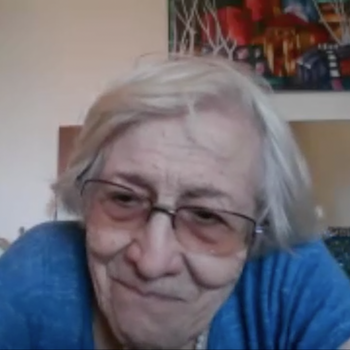
Zohra Drif

Djaouida Siaci
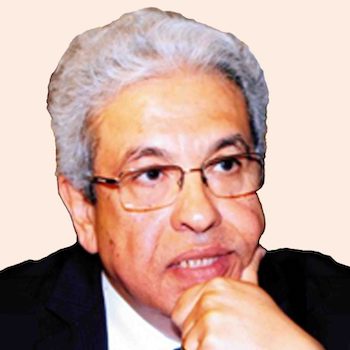
Dr. Abdelmonem Said Aly
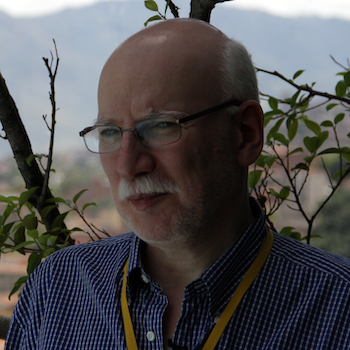
Amin Khan
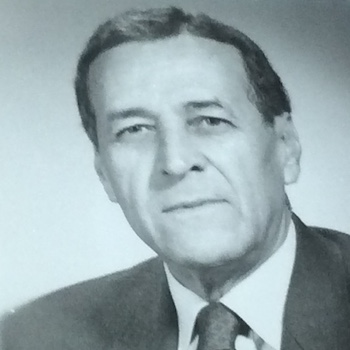
Nacereddine Gueche
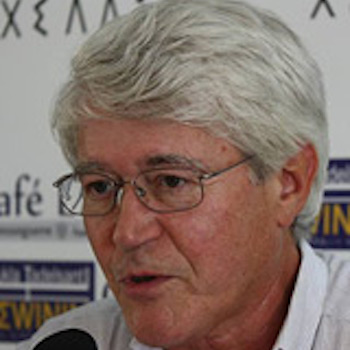
Dr. Hugh Roberts
Support Just World Educational
JWE has a golden opportunity to make a difference in this country...

Stay in touch! Sign up for our newsletter:
